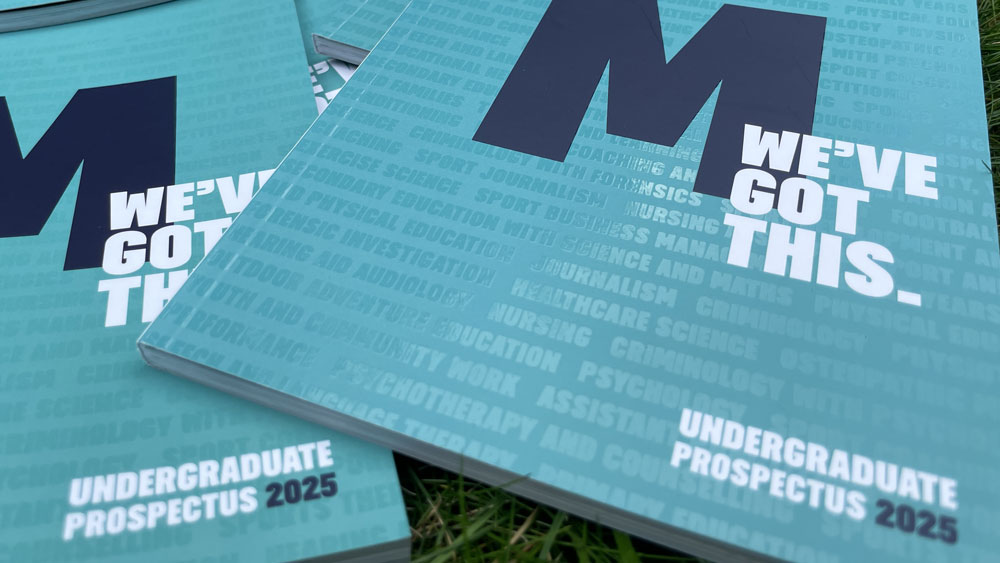Interested in this course? Book now for Open Day to find about more
Physiotherapy - MPhysio
This physiotherapy degree is a pre-registration MPhysio Integrated Masters in Physiotherapy for undergraduate entry. Explore anatomy, physiology and the sociological side of physiotherapy. Build the skills and hands-on experiences needed to work in this rewarding profession as a competent and confident Physiotherapist. This course is approved by the Health & Care Professions Council (HCPC) and the Chartered Society of Physiotherapy (CSP).


Our structured placements progress from on-campus clinics and into real community settings

Apply now for this course
Entry requirements
Three A-levels at grades BBB-AAB or above including Science; Biology, Human Biology are preferred but other subjects will be considered
Or BTEC triple grades DDM-DDD
Or Access 45 level 3 credits at D/M with min 24D including a science related subject
T level D - D*
And at least five GCSEs grade B or grade 5 and above to include Maths, English and Science
International Baccalaureate to include two Higher level IB certificates at grade 4 or above, with grade 5 in a science subject
UCAS points 120-136
UCAS code IMPH
UCAS institution code P63
Duration Four years full-time
Any questions?
Contact Tara Godber, our Applicant Support Coordinator, if you have any questions. Email applicantsupport@marjon.ac.uk and Tara will get back to you.
Course Summary
The Integrated Masters in Physiotherapy (MPhysio) is a four year pre-registration physiotherapy degree for undergraduate entry.
Students will be equipped with the skills and knowledge to work in the ever-evolving healthcare sector. Our team also encourage an approach that fosters empathy and compassion for their clients and their problems.
Due to a growing and ageing population with long term conditions and complex presentation in UK, there is an increasing need for physiotherapists. They promote health and wellbeing in primary care settings, such as general practice and hospitals, and support patients and carers in community settings too.
The curriculum is developed in collaboration between academics, clinical staff and service users, enabling graduates to maximise their potential and achieve professional competence in physiotherapy. It combines strong practical elements with all the relevant theories.
Placements are carefully structured to progress from our on-site clinics out into community settings, working with health organisations such as Livewell South West, St Luke's Hospice and University Hospitals Plymouth.
You may be eligible for a training grant of £5,000 per year - https://www.nhsbsa.nhs.uk/nhs-learning-support-fund-lsf (see 'fees and funding' below for more info).
Please note that full attendance is expected in this program.
This MPhysio physiotherapy degree incorporates leadership and quality enhancement modules. This knowledge and experience is attractive to health care providers and recognises that future practitioners need these skills to contribute effectively to flexible and responsive service delivery.
Plymouth Marjon University offers accommodation, a sports centre, bar and theatre onsite, as well as an active Students' Union, exceptional student support and the beaches and moors of Devon and Cornwall within reach.
From 2025 you will be learning and working in our brand new Health and Wellbeing Hub, alongside other Allied Health Profession students and professionals to offer an integrated clinical experience to members of the public. You can find out more about our public health clinics, which are a critical part of our student learning experience, here: Marjon Health and Wellbeing | Plymouth Marjon University
Why this course at Marjon?
Opportunities to learn from a multidisciplinary team including physiotherapists, exercise physiologists, nutritionists, psychotherapists and osteopaths
Conduct your Master's project in our state-of-the-art biomechanics, physiology or strength and conditioning labs, with expert support from the teaching team
Develop the knowledge and skills to work across different settings such as acute care, community care, extended rehabilitation and primary care
Full university experience at a fantastic campus with on-site accommodation
Develop your skills with real patients in various health care settings including at our on-site Physiotherapy Clinic
Leadership and service enhancement modules in this four-year integrated Master's degree
Modules for this course
Course Snapshot
“ The first year will build up your knowledge in subject areas related in physiotherapy, such as anatomy, physiology and biomechanics. The second and third year are more focused on physiotherapy studies across different health care settings such as acute care, community physiotherapy, extended rehabilitation. You have one six-week placement in the second year and two six-week placements in the third year. In the fourth year you’ll progress to more complex patient management, explore how to enhance physiotherapy services and practice and complete your Master's project. You will have your final two six-week placements in the fourth year, bringing you to a total of 1000 placement hours.”
1st Year
Personal and professional development
Physiotherapy assessment and intervention
Anatomy, physiology and pathology
Foundation in physiotherapy practice
Anatomy and biomechanics
Principles of activity and exercise
2nd Year
Integrated physiotherapy studies
Health behaviour and psychology
Community physiotherapy
Health and wellbeing
Extended rehabilitation
Clinical placement one
3rd Year
Clinical placement 2
Leadership & interprofessional learning
Acute care
Research methodology
Physiotherapy for long-term conditions
4th Year
Masters research project
Complex patient management and pathways
Clinical placement three
Enhancing services and practice
This course is perfect if you’re curious about
How does a physiotherapist help someone with back pain?
How does a physiotherapist help someone to recover after a stroke?
How can physiotherapy help a child with cerebral palsy?
What do physiotherapists do in intensive care unit?
How do physiotherapists help people with Covid and long Covid?
How does a physiotherapist help people in the community who are at high risk of falls?
“ We are delighted to see innovation in preparing physiotherapy students to work in the community with patients who have long term and complex conditions, as this mirrors our patient profile with the majority of our patient’s palliative and end of life care occurring at home. St Luke’s Hospice, Plymouth are committed to supporting Plymouth Marjon University with physiotherapy placements as we work together in developing the health care professionals of the future.”
Accreditation
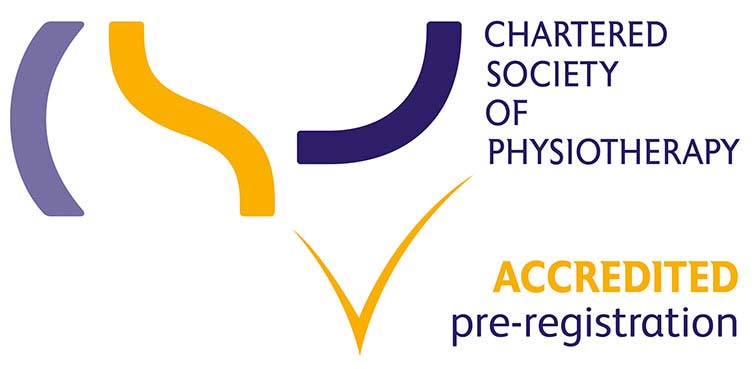
Chartered Society of Physiotherapy (CSP)
This programme is accredited by The Chartered Society of Physiotherapy (CSP).
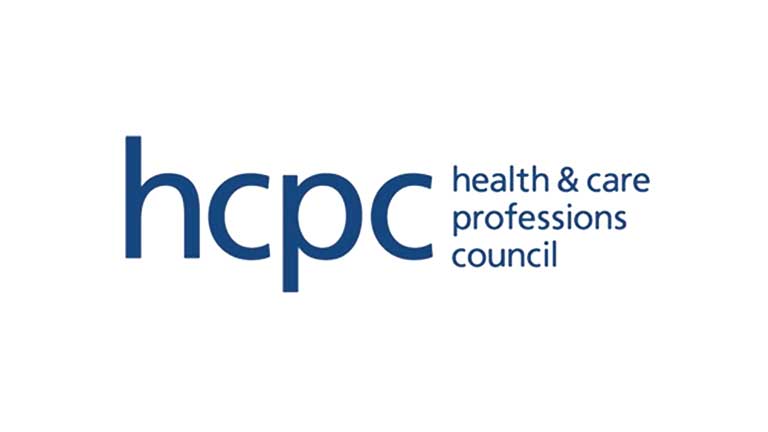
Health and Care Professions Council (HCPC)
HCPC register and set the standards for health professionals and they approve the courses which professionals must complete to register as a practitioner in their field.
What might you become?
On successful completion of the programme you will be able apply for registration with the Health and Care Professions Council (HCPC) as a Physiotherapist. Starting salaries for a Physiotherapist within the NHS range from £25,655-£31,534 (band 5); salaries in private practice can be higher.
There are an increasing variety of opportunities for physiotherapists across a variety of healthcare settings and other workplace environments, including the NHS, primary and social care, education, research, sport and private practice. You'll graduate equipped to work in acute, community and extended rehabilitation settings.
How you’ll be taught and assessed?
How will you be taught?
Various teaching methods including lectures, online lectures by external speakers, seminars and a strong practical element. Students are required to complete 1000 hours of practice based learning across the four years.
How will you be assessed?
A wide range of assessments including essays, practical exams, written exams, presentation.
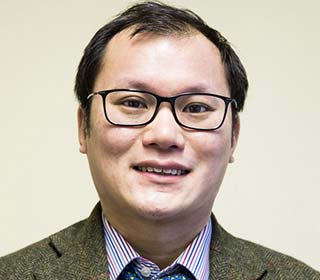
Gary is a chartered physiotherapist, and an Honorary Professor for the Royal Devon and Exeter NHS Foundation Trust where he conducts research into back pain and nerve biomechanics. He brings a wealth of experience in musculoskeletal injury and diagnosis to share with his students.
Fees and funding
Fees UK students: £9,535 per annum
Fees for International students: £14,600 per annum
This fee covers your tuition and access to course-specific equipment and facilities, as well associated services including access to the library, study skills support, IT support, student support and wellbeing services and membership of the Student Union.
Additional costs:
- You will need to be able to travel to your placement.
- You shall need to purchase some of your own pair of comfortable shoes, clinical items, such as a stethoscope (estimated cost £80), goniometer (£15).
- You will be required to have a satisfactory enhanced Disclosure Barring Service (DBS) check costing around £50 which needs to be paid for before the start of the course.
- Student membership to the Chartered Society of Physiotherapy will also be required (Annual fees: around £42).
- Before your first clinical placement in year 2, we ask that you ensure you have had the vaccinations listed below. You will be asked to show evidence of your vaccination or immunity status before being permitted to undertake any clinical placement activity.
- Hepatitis B (around £200)
- Chicken Pox (around £150)
- TB (around £200)
- MMR (around £100)
Funding available for this course
- A training grant of £5,000 per academic year from NHS Learning support fund (NHS LSF) for those eligible.
- Eligible students could claim travel and dual accommodation expenses through the NHS LSF - Travel and Dual Accommodation Expenses (TDAE) to undertaking practical training on your clinical placement.
- For those with a previous degree, you may be eligible for NHS LSF to receive a second degree maintenance loan and tuition fee support from the Student Loans Company.
- Our Student Funding Advisors offer confidential and impartial advice about your funding options.
Lecturers
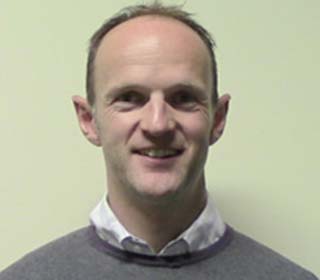
Saul's research focuses on the prevention and treating non communicable disease through lifestyle interventions. He has established several health and wellbeing clinics in partnership with the NHS and charitable organisations to support patients with back pain, cancer, fibromyalgia and leg ulcers.
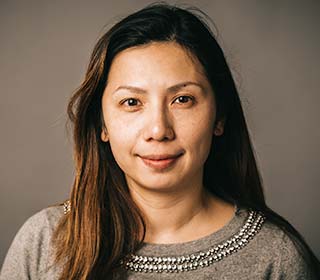
Sherrie is a Chartered Physiotherapist in both UK and Kong Kong and an accredited member of the Acupuncture Association of Chartered Physiotherapists. She has over twenty years extensive clinical experience in NHS and private sectors. She is passionate in clinical teaching and research support evidence-based practice in healthcare. She specialises in musculoskeletal physiotherapy and cardio-pulmonary rehabilitation. She is currently studying for a PhD sponsored by the University Plymouth Hospitals NHS Trust about vision and balance changes in Cataract patients receiving lens replacement surgery.
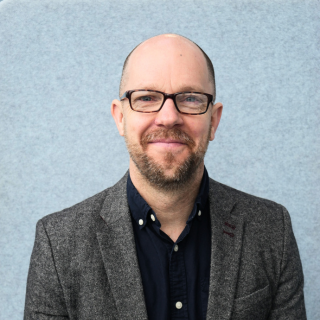
Ben has more than 20 years experience working in various health and fitness roles. In this time he has worked with more than a thousand participants and helped train hundreds of fitness professionals.
More information
Marjon Physiotherapy Patient and Public Involvement and Engagement(PPIE) group
The 4-year Integrated Master in Physiotherapy programme offers a framework of patient, public involvement and engagement (PPIE) in which we will meet 3 times a year to identify priorities for future development of the physiotherapy programme, the student-led Marjon physiotherapy clinic and research.
The programme teaching team would share news and outcomes of our programme, clinic and research development and present ideas to gain feedback and
We would like to invite patients, carers, clinicians, manager, service users or any stakeholders to join the Marjon Physiotherapy PPIE group.
If you are interested in knowing more about our PPIE, including joining the register please contact Professor Gary Shum at gshum@marjon.ac.uk
Apply now for this course
Find out more about studying Physiotherapy - MPhysio at Marjon
